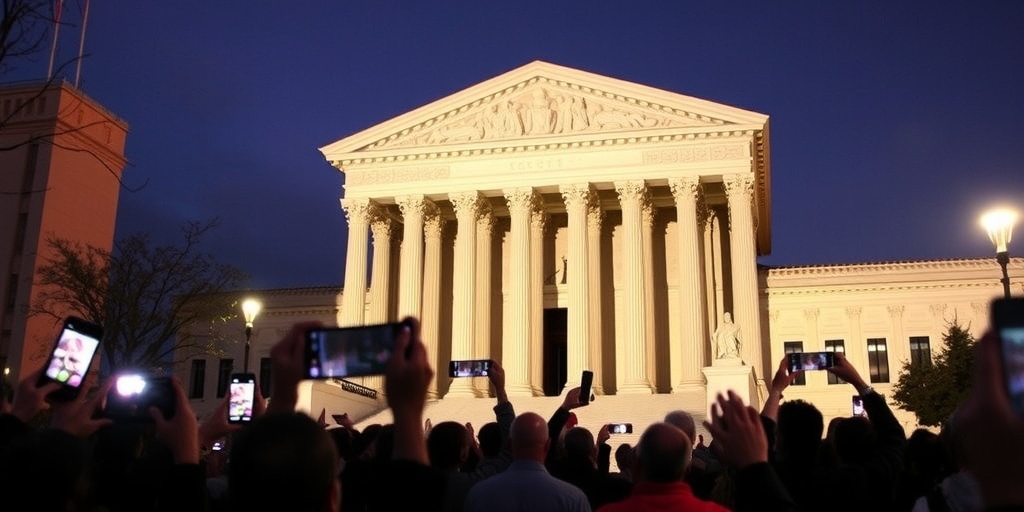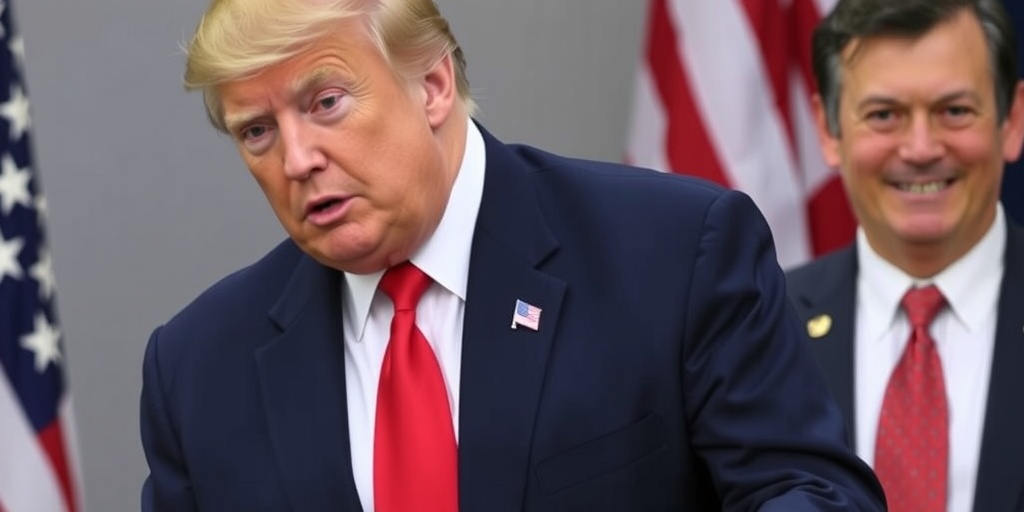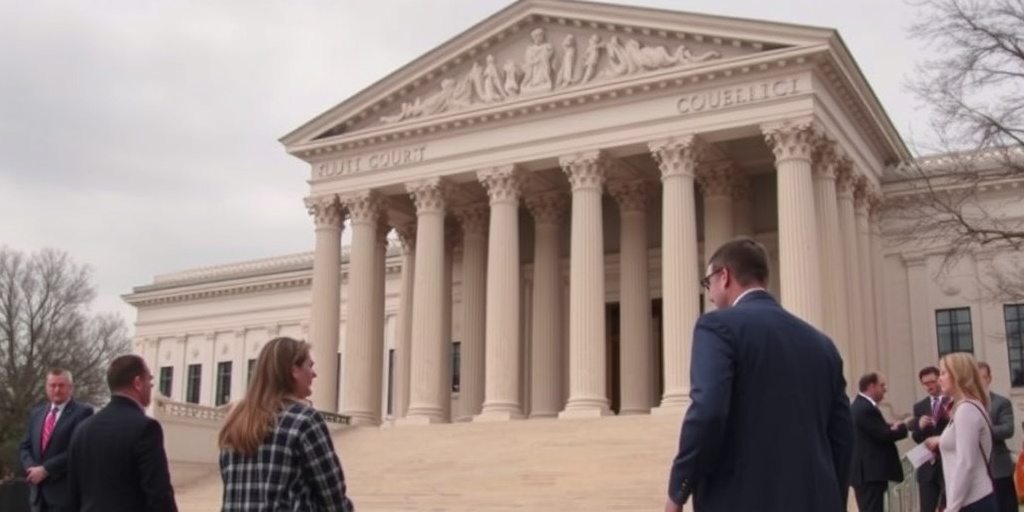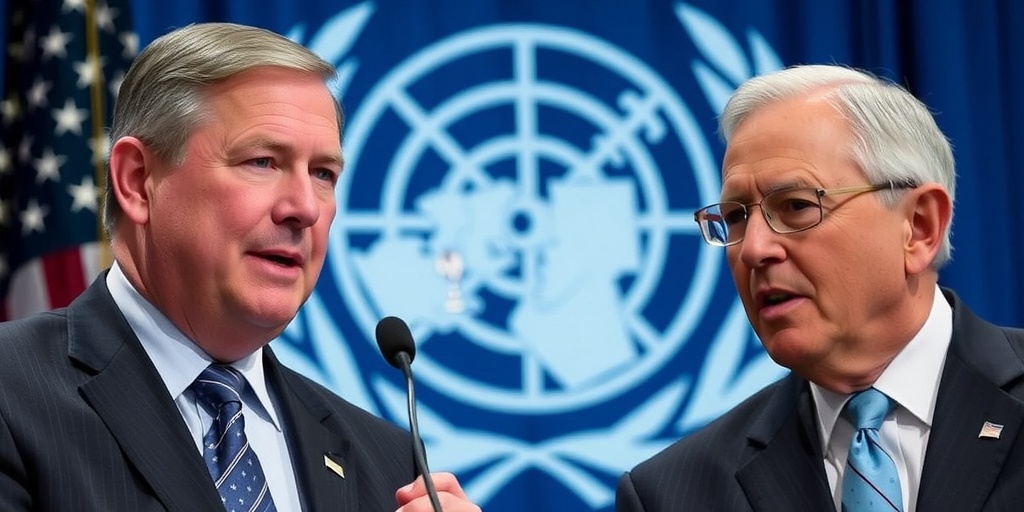Now Reading: Court Denies Unions’ Bid to Halt Mass Firings
-
01
Court Denies Unions’ Bid to Halt Mass Firings
Court Denies Unions’ Bid to Halt Mass Firings

Federal Judge Upholds Trump Administration’s Workforce Reductions Amid Union Opposition
In a significant ruling on Thursday, a federal judge affirmed the Trump administration’s controversial initiative to significantly scale back the federal workforce. The decision permits the ongoing mass firings within various government agencies to continue, much to the dismay of labor unions that had sought to halt these actions.
Judge Christopher R. Cooper, a U.S. District Court judge based in Washington, D.C., expressed his apprehensions regarding the turmoil sparked by the administration’s aggressive executive actions. Nonetheless, he concluded that the legality of the workforce reduction efforts did not fall within the jurisdiction of the federal court. Instead, he emphasized that such matters should first be addressed by the Federal Labor Relations Authority (FLRA), the designated body that mediates disputes between federal employee unions and management.
In his ruling, Judge Cooper articulated his concerns about the broader implications of President Trump’s second administration’s initial month, which has been characterized by a series of executive orders leading to widespread disruption and uncertainty across the country. “The first month of President Trump’s second administration has been defined by an onslaught of executive actions that have caused, some say by design, disruption and even chaos in widespread quarters of American society,” the judge remarked.
Despite recognizing the chaotic circumstances that have arisen, Judge Cooper reiterated the principles guiding federal judges. He stated, “Federal district judges are duty-bound to decide legal issues based on even-handed application of law and precedent — no matter the identity of the litigants or, regrettably at times, the consequences of their rulings for average people.” This reinforces the role of the judiciary as an impartial arbiter, regardless of the political implications of their decisions.
The ruling holds substantial significance for labor unions, which had sought the court’s intervention to prevent the administration from proceeding with its workforce reduction strategy. Judge Cooper’s decision indicates that unions would need to pursue their grievances through the FLRA before re-engaging with the judiciary. He assured them that should they fail in that arena, they would still have the opportunity to resume their legal challenge through the federal court of appeals, should their circumstances warrant such action.
The outcome of this case mirrors a recent decision made by a Massachusetts judge, who also ruled that labor unions representing federal workers lacked the standing to contest the Trump administration’s measures in federal court. This concurrence among judges in different jurisdictions suggests a challenging legal landscape for unions aiming to protect their members against significant reductions in federal employment.
The Trump administration’s approach to workforce reduction has been seen by many as a targeted effort to reshape the federal government and its operations. Critics argue that such moves could lead to long-lasting impacts on public services and employee morale within the federal system. The implications of large-scale firings can reverberate through local economies and affect the delivery of essential services that many rely upon.
As the legal battles continue, labor unions are likely to explore their options vigorously. They may leverage the findings of the FLRA as they seek to assert their rights and advocate for their members throughout this tumultuous period. The future of federal employment under the current administration remains uncertain, and union leaders have expressed their determination to fight back against policies they believe threaten the welfare of workers.
In conclusion, the ruling by Judge Cooper marks a pivotal moment in the ongoing struggle between the Trump administration and labor unions over federal workforce policies. As the legal process unfolds, it will be crucial for all stakeholders to navigate the complexities of federal labor law and the rights of workers in a rapidly changing political landscape. The decisions made in the coming weeks and months will undoubtedly have lasting ramifications for federal employees and the broader context of labor relations in the United States.
Stay Informed With the Latest & Most Important News
Previous Post
Next Post
-
 01New technology breakthrough has everyone talking right now
01New technology breakthrough has everyone talking right now -
 02Unbelievable life hack everyone needs to try today
02Unbelievable life hack everyone needs to try today -
 03Fascinating discovery found buried deep beneath the ocean
03Fascinating discovery found buried deep beneath the ocean -
 04Man invents genius device that solves everyday problems
04Man invents genius device that solves everyday problems -
 05Shocking discovery that changes what we know forever
05Shocking discovery that changes what we know forever -
 06Internet goes wild over celebrity’s unexpected fashion choice
06Internet goes wild over celebrity’s unexpected fashion choice -
 07Rare animal sighting stuns scientists and wildlife lovers
07Rare animal sighting stuns scientists and wildlife lovers





















